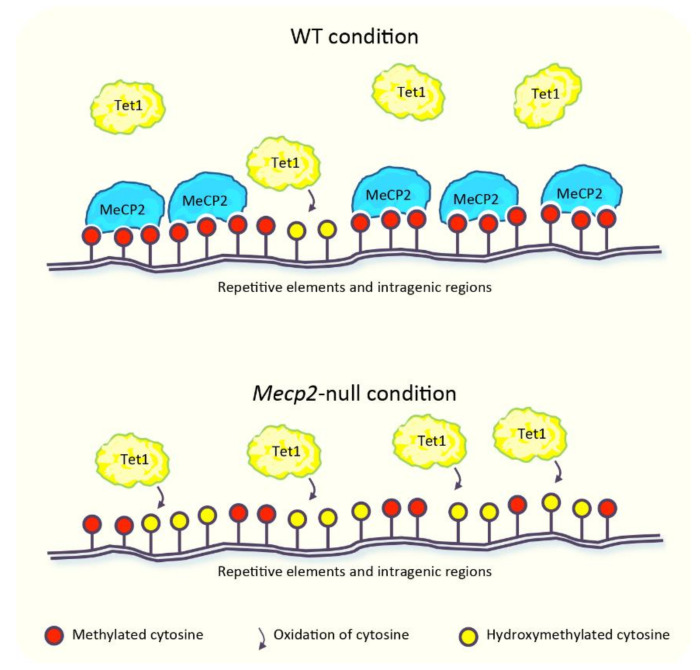Figure 1.
MeCP2 protects DNA methylation from oxidation. In physiological conditions, MeCP2 competes with Tet1 for the binding of methylated cytosines across repetitive elements and intragenic regions (top). The absence of MeCP2 opens the access to Tet1, which converts 5-methylcytosines to 5-hydroxymethylcytosines, leading to an enhanced hydroxymethylation (bottom) [76,77].

